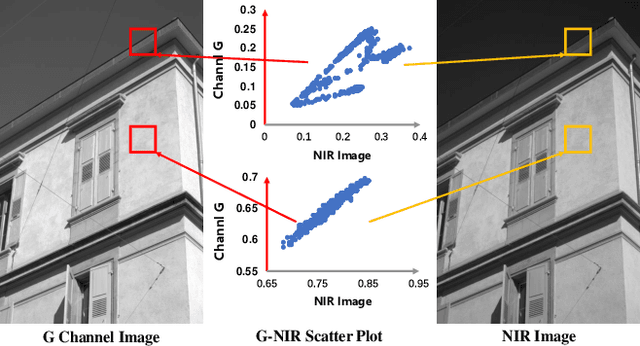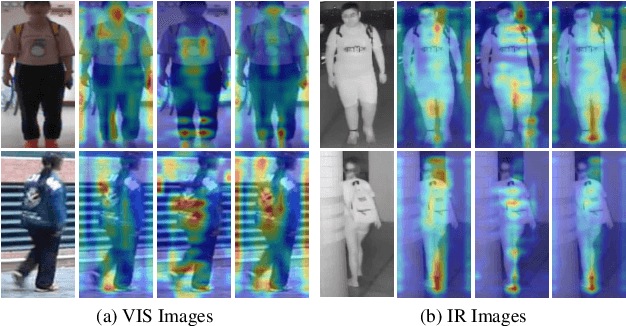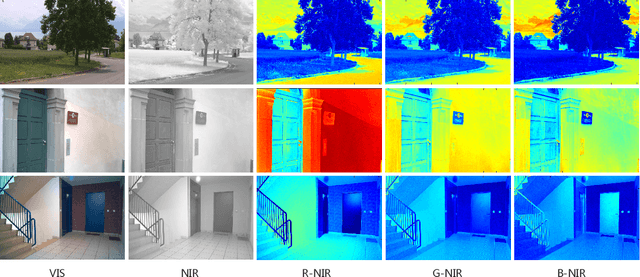Exploring Invariant Representation for Visible-Infrared Person Re-Identification
Paper and Code
Feb 02, 2023



Cross-spectral person re-identification, which aims to associate identities to pedestrians across different spectra, faces a main challenge of the modality discrepancy. In this paper, we address the problem from both image-level and feature-level in an end-to-end hybrid learning framework named robust feature mining network (RFM). In particular, we observe that the reflective intensity of the same surface in photos shot in different wavelengths could be transformed using a linear model. Besides, we show the variable linear factor across the different surfaces is the main culprit which initiates the modality discrepancy. We integrate such a reflection observation into an image-level data augmentation by proposing the linear transformation generator (LTG). Moreover, at the feature level, we introduce a cross-center loss to explore a more compact intra-class distribution and modality-aware spatial attention to take advantage of textured regions more efficiently. Experiment results on two standard cross-spectral person re-identification datasets, i.e., RegDB and SYSU-MM01, have demonstrated state-of-the-art performance.
 Add to Chrome
Add to Chrome Add to Firefox
Add to Firefox Add to Edge
Add to Edge